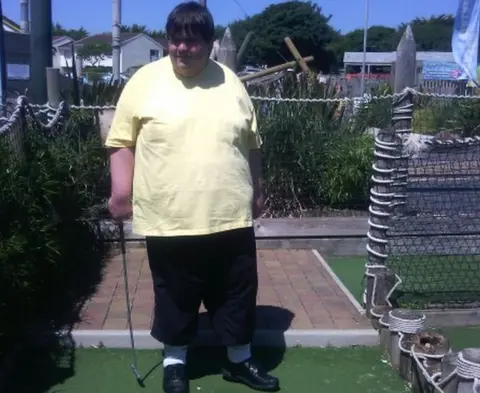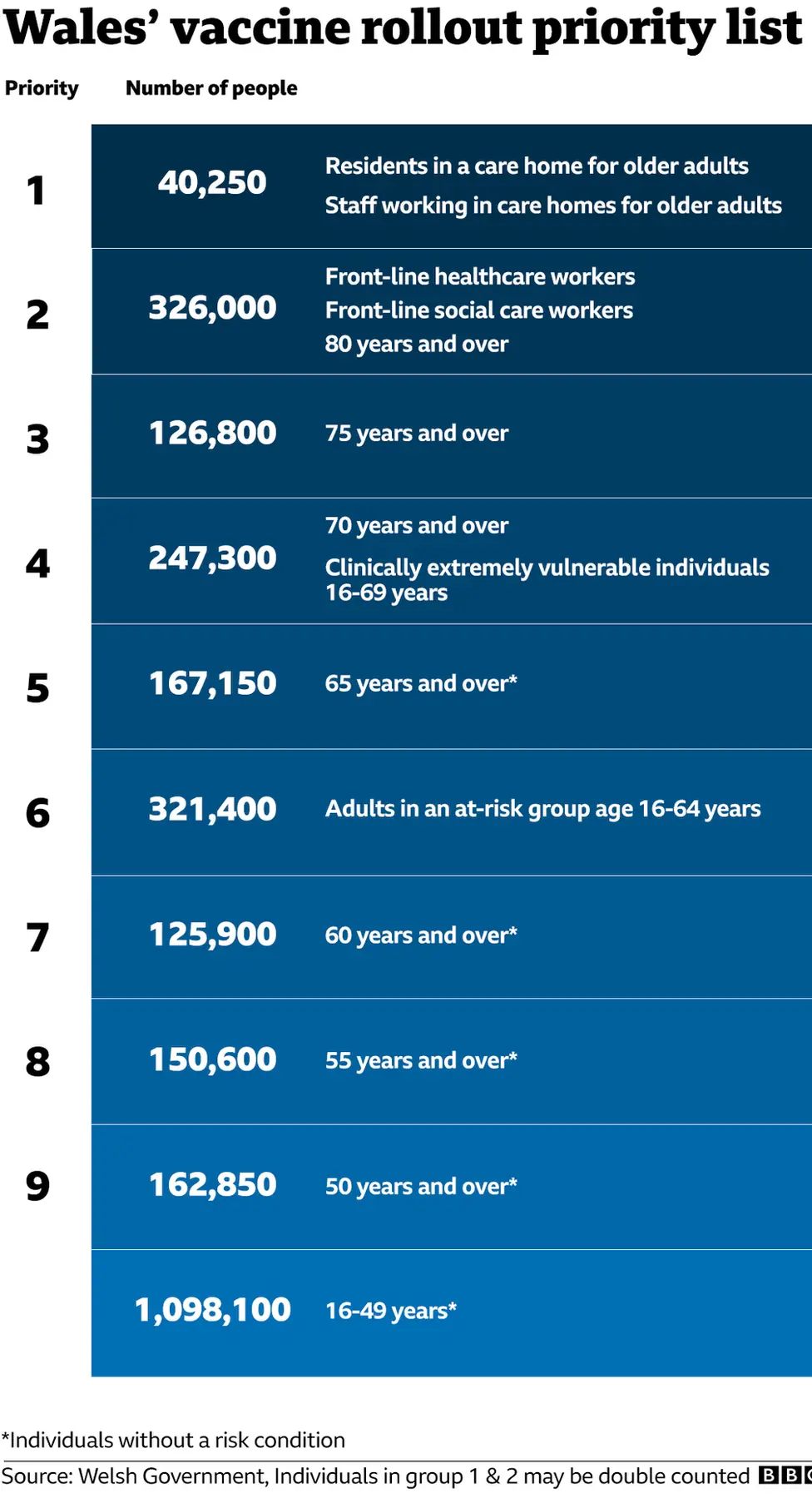Covid: Vaccine plea for learning disabled home residents
 Family photo
Family photoAdults with learning disabilities who live in supported housing should be a higher priority for the Covid-19 vaccination, campaigners have said.
A parents and carers' group want them vaccinated in the same round as health and social care workers and over-80s.
There are about 3,500 adults with learning disabilities living in supported accommodation in Wales.
The Welsh Government said the priority groups were set by the Joint Committee on Vaccination and Immunisation.
An academic said people with learning disabilities aged over 35 were at the same risk of dying as those in their 70s.
People with learning disabilities are six times more likely to die from the virus than people of the same age and sex, according to a recent report from Public Health England.
Anyone under 70 who is "clinically extremely vulnerable" is in the fourth group on the priority list, while those paid to care for people with learning disabilities in supported living are in the second.
'Forgotten about'
 Family photo
Family photoPauline Dowden's son Steven, 36, is profoundly autistic with severe learning disabilities and lives in supported accommodation in Rhondda Cynon Taf.
Mrs Dowden said: "His oral skills are very poor, and his speech is like a two-year-old's. He's also very obese, 6ft 3in, and 32 stone. He was always big but he's put on a lot of weight since the Covid outbreak, because his activities - like walking, swimming and basketball - stopped."
Steven has a team of 10 carers who work in shifts to care for him 24 hours a day.
Those carers will be in priority group two for the vaccine but Mrs Dowden wants Steven and others in similar situations to be vaccinated at the same time.
While they are not more at risk of catching Covid-19, the impact of the disease is more severe than those without learning disabilities.
Mrs Dowden said they had been "forgotten about".

"I am deeply saddened and constantly worried about my son's wellbeing. I think it's appalling that they're forgotten about. I think it's appalling that their needs are not being recognised by those in authority.
"It's their duty to look after the most vulnerable in society, are they doing that? In my opinion? No."
Mrs Dowden is worried Steven would not survive if he caught Covid-19.
'Disparity'
Kate Young, director of the All Wales Forum of Parents and Carers of People with Learning Disabilities, said there should be a similar system to care home settings where residents and staff are in the same priority group.
Ms Young said adults with learning disabilities were more vulnerable, and as the number living in supported housing was fairly small it would be "illogical" not to vaccinate them at the same time as their carers.
"When it comes to supported living it feels like we have a disparity," Ms Young added.

"Understandably we have focused on ensuring that care homes residents and care home staff are getting the vaccination, but on equal parity so that residents are receiving the vaccination alongside the staff member, in order to ensure the risk of Covid-19 is eradicated from those settings."
She now wants the same thing to happen in supported housing.
Prof Stuart Todd, a professor of intellectual disability research at the University of South Wales, said adults who are aged 35 and over with a learning disability have an equal risk of dying as those who are aged in their 70s in the general population.
He said underlying health conditions and health inequalities were some of the reasons why this was the case.
He agreed that vaccinating front-line carers should be prioritised over the general population.
However he added: "If you give vaccinations to the same number of people with learning disabilities that you might provide to people in the general population you will save more lives. The impact is huge."
A Welsh Government spokesperson said all people in the highest priority groups would be immunised as safely and as soon as possible.
"People with severe and profound learning disabilities will usually be classed by their clinician as clinically extremely vulnerable, whilst other people with learning disabilities which are less complex are included in priority group six," they said.
